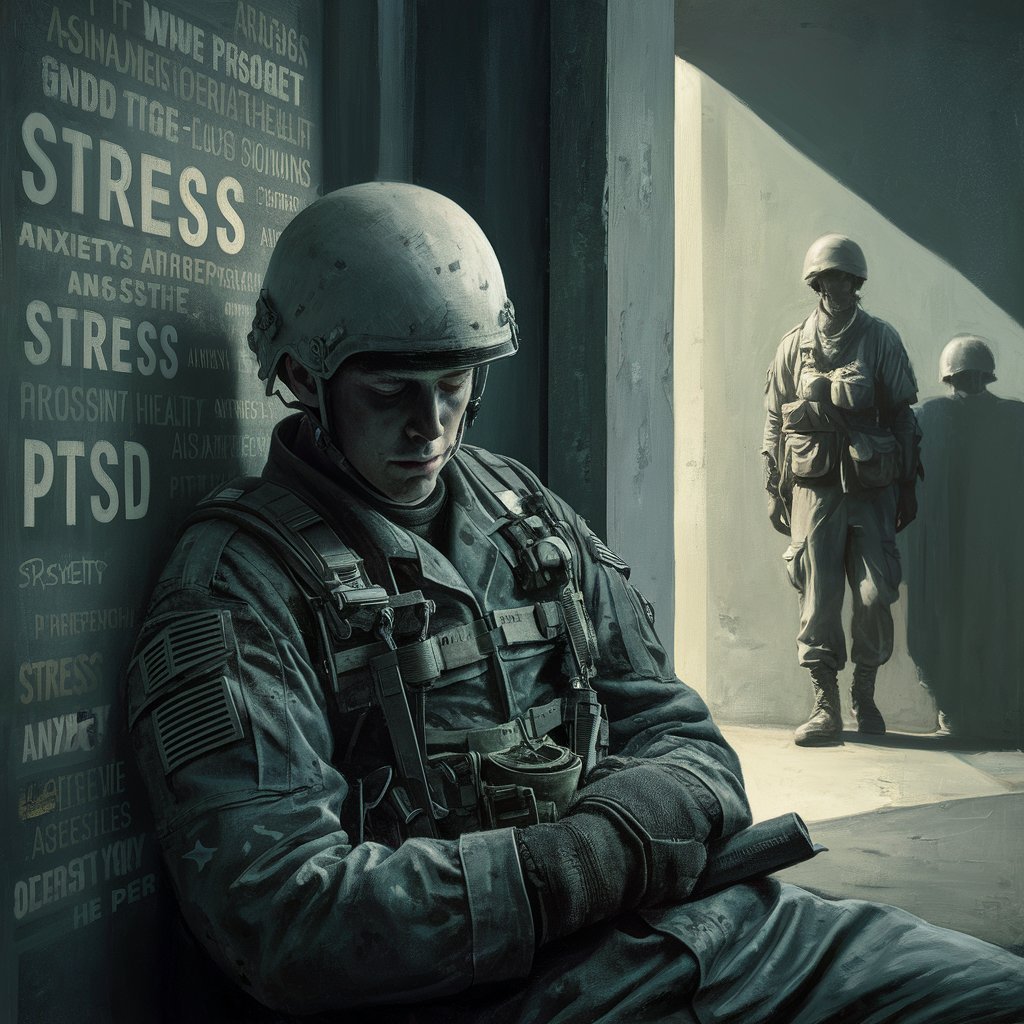Mental Health in the Military and Veterans: Addressing Unique Challenges
Hey there, my young and compassionate friends! It’s your mental health buddy, Nita Sharda, here to talk about a topic that’s close to my heart – mental health in the military and among veterans.
Now, I know that when we think of the military, we often think of brave men and women who serve our country with honor and courage. We think of heroes who put their lives on the line to protect our freedoms and keep us safe.
And while that’s absolutely true, it’s important to remember that our military members and veterans are also human beings, with their own unique struggles and challenges – especially when it comes to mental health.
The Unique Challenges of Military Life
So, what makes mental health such a big issue for our military and veteran communities? Well, there are actually a lot of factors at play.
First of all, military life can be incredibly stressful and demanding. Service members are often asked to work long hours, be away from their families for extended periods of time, and face dangerous or traumatic situations in the line of duty.
This constant stress and pressure can take a serious toll on mental health, leading to things like anxiety, depression, and post-traumatic stress disorder (PTSD).
Additionally, the culture of the military can sometimes make it hard for service members to reach out for help when they’re struggling. There’s often a stigma around mental health issues, and a belief that asking for help is a sign of weakness.
This can lead to a lot of service members suffering in silence, and not getting the support and treatment they need to heal and recover.

The Impact of Combat and Trauma
Another big factor in military mental health is the impact of combat and trauma. Many service members have experienced things in the line of duty that most of us can’t even imagine – things like:
- Witnessing or experiencing violence and death
- Being injured or seeing others injured
- Losing close friends and comrades
- Being in constant danger and fear for their lives
These experiences can be incredibly traumatic, and can lead to a whole host of mental health issues like PTSD, depression, anxiety, and substance abuse.
In fact, studies have shown that up to 20% of veterans who served in Iraq and Afghanistan have experienced PTSD, and that veterans are at a higher risk for suicide than the general population.
It’s clear that the unique challenges and traumas of military life can have a serious impact on mental health, and that we need to do more to support our service members and veterans in their recovery journey.
Addressing the Stigma and Barriers to Care
So, what can we do to help address the mental health needs of our military and veteran communities? One of the biggest things is to work on breaking down the stigma and barriers to care.
This means creating a culture where it’s okay to talk about mental health, and where seeking help is seen as a sign of strength, not weakness. It means educating service members and veterans about the importance of mental health, and the resources available to them.
It also means making sure that mental health care is accessible and affordable for all service members and veterans, regardless of their location or financial situation.
Some ways we can work towards this include:
- Increasing funding for military and veteran mental health programs
- Expanding telehealth and online therapy options for those in remote or underserved areas
- Providing more education and training for military leaders and healthcare providers on mental health issues
- Encouraging open and honest conversations about mental health in military and veteran communities
- Offering peer support and mentorship programs for service members and veterans struggling with mental health issues
By working together to break down the stigma and barriers to care, we can help ensure that all service members and veterans have access to the support and treatment they need to heal and thrive.
The Power of Peer Support and Community
Another key factor in supporting military and veteran mental health is the power of peer support and community.
When service members and veterans are struggling with mental health issues, it can be incredibly isolating and lonely. They may feel like no one understands what they’re going through, or like they’re the only one facing these challenges.
But the truth is, there are so many others who have been through similar experiences and who are ready and willing to offer support, encouragement, and understanding.
Peer support programs, where veterans and service members can connect with others who have been through similar struggles, can be incredibly powerful in the recovery journey.
These programs offer a safe and supportive space to share experiences, learn coping strategies, and build a sense of community and belonging.
Some examples of peer support programs for military and veteran mental health include:
- Vet Centers, which offer free counseling and support services for veterans and their families
- The Wounded Warrior Project, which provides mental health support and resources for injured veterans
- Give an Hour, which connects military and veteran families with free mental health services from volunteer providers
- The Veterans Crisis Line, which offers 24/7 support and resources for veterans in crisis
By connecting with others who understand the unique challenges of military life, service members and veterans can find the support and encouragement they need to keep moving forward in their recovery journey.
The Importance of Self-Care and Resilience
Finally, it’s so important for service members and veterans to prioritize self-care and resilience in their mental health journey.
Military life can be incredibly demanding and stressful, and it’s easy to put your own needs on the back burner in service of others.
But taking care of your own mental and emotional well-being is not selfish – it’s essential for being able to show up as your best self, both in and out of uniform.
Some simple self-care strategies that service members and veterans can use to support their mental health include:
- Practicing mindfulness and meditation to reduce stress and anxiety
- Engaging in regular exercise and physical activity to boost mood and energy levels
- Spending time in nature and connecting with the world around you
- Nurturing supportive relationships with friends, family, and loved ones
- Finding hobbies and activities that bring you joy and fulfillment
- Seeking professional help and support when needed
By prioritizing self-care and building resilience, service members and veterans can develop the tools and strategies they need to navigate the challenges of military life and maintain good mental health.
A Message of Hope and Support
Before we wrap up, I want to take a moment to speak directly to any military members, veterans, or family members who may be struggling with mental health issues right now.
I know how tough and isolating it can feel to be dealing with these challenges, especially in a culture that often stigmatizes mental health issues.
But I want you to know that you are not alone, and that there is hope and support available to you.
You are so much stronger and more resilient than you even know, and you have the power within you to overcome any obstacle that comes your way.
And you don’t have to do it alone. There are so many people and resources out there who are ready and willing to support you in your journey – whether it’s a therapist, a peer support group, a crisis hotline, or just a trusted friend or family member.
So don’t be afraid to reach out for help when you need it. Don’t be afraid to lean on the strength and wisdom of those who have been where you are.
And most importantly, don’t give up on yourself. You are worthy of love, support, and healing, and you have so much to offer the world.
Keep taking those small steps forward, even when it feels hard. Keep believing in your own resilience and strength. And know that your mental health buddy Nita is always here, cheering you on and sending you all the love and virtual hugs in the world.
You’ve got this, my brave warriors. Keep shining your light, keep reaching out for help, and keep spreading that magic wherever you go.













Leave a Reply